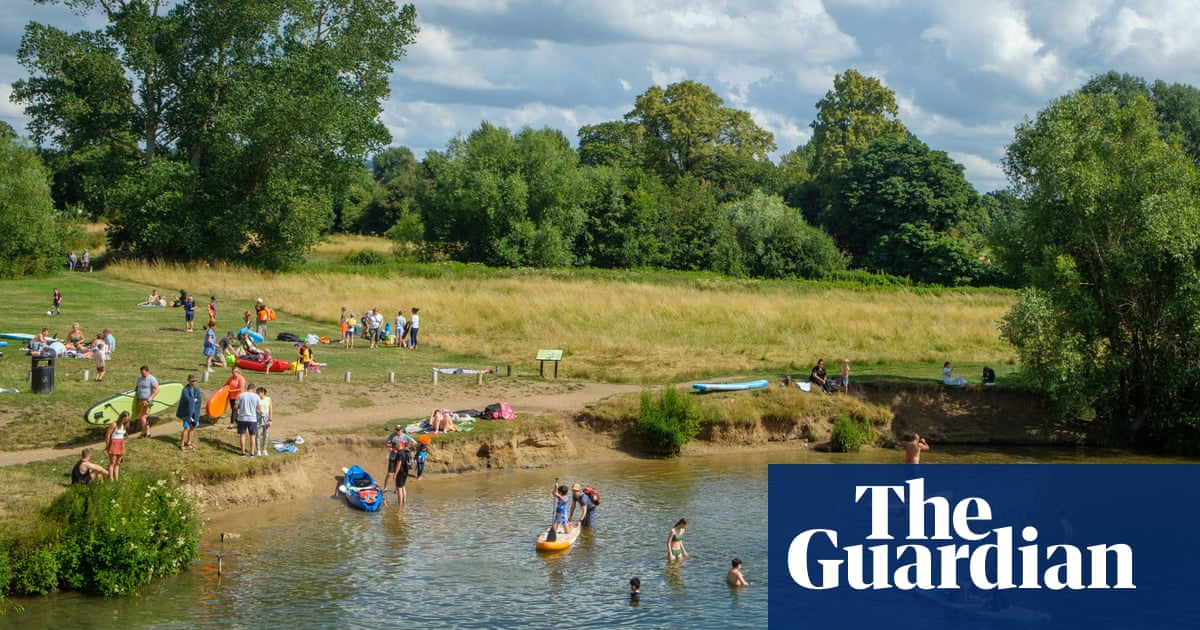So 0 bathing sites and 27 aesthetic water sites.
27 new places to litter
Coming soon: Toxic Avenger UK Edition
Sadly I think all we’ve got coming for us is the return of cholera and typhoid.
The UK needs more swimming spots. Jumping in river by me was one of my highlights of my childhood but now its all fenced off.
I lived near a small artificial lake that was that was a popular unofficial outdoor swimming location. But the local authorities were always trying to keep people out. It eventually became a bit of a party spot and there was a couple of drownings, which lead to big fences and security patrols going up. Last thing I heard the place had been redeveloped into an expensive private leisure resort.
I gets there’s always a balance between access and safety, but there’s a real lack of free and open places in the country these days.
I think it’s the fact we are so scared of death that we forget to live.
Even if we stop people drinking if we open up the country to swimming it’s inevitable people will die. It’s about minimising that risk not about removing that hobby entirely.
I always think about driving a car. If the risk is less that driving a car then I think let’s do it. I get no fun out of driving but I think that’s not risky and I do it all the time.
putting pressure on water companies to stop dumping sewage in them.
I mean, it’s a result of using older combined sewers. The sewer and drains go to the same place, so when there’s enough rain, the system gets overwhelmed and dumps some amount without treating it.
I’m sure that if people are willing to pay what it’d cost to upgrade the sewer system, that upgrading it isn’t a problem, but it’s not free, and one has to weigh the cost against that benefit.
I’ve got one relative living in a city in the US that’s in the process of doing that shift away from a combined sewer system, and the total cost of the rebuild is around $5,000 per resident (not household, but resident). That’s a fair bit of money to ask the population to pay.
In their case, it wasn’t driven purely by a desire to convert from a combined sewer system, but because the existing system needed to be fixed, and if you’re going to have to do major repairs anyway, then it’s time to bite the bullet and pay for dealing with the combined sewer. I’m thinking that it may be that British cities might do something like that – kick the can down the road until the system really has to be replaced anyway, and then pay what it costs to move away from the combined sewer.
The water companies have been paying dividends to their shareholders while not doing anything to upgrade the sewerage system. Certainly the people won’t want to pay twice for the upgrade.
This is the best summary I could come up with:
Giving waterways bathing status means the Environment Agency has to test them for pollution during the summer months, putting pressure on water companies to stop dumping sewage in them.
Sewage spills and agricultural runoff mean swimming sites can carry E coli and intestinal enterococci, which could make swimmers ill.
The water campaigner and former Undertones singer Feargal Sharkey told the Guardian: “Every single stretch of river in England currently tested carries a ‘do not swim’ advisory.
Recent data showed raw sewage was discharged into rivers and seas for more than 3.6 million hours, more than double that in the previous 12 months.
“These popular swimming spots will now undergo regular monitoring to ensure bathers have up-to-date information on the quality of the water and enable action to be taken if minimum standards aren’t being met.”
“Overall bathing water quality has improved massively over the last decade due to targeted and robust regulation from the Environment Agency, and the good work carried out by partners and local groups.
The original article contains 519 words, the summary contains 167 words. Saved 68%. I’m a bot and I’m open source!
We don’t need the nanny state guaranteeing us clean water z




